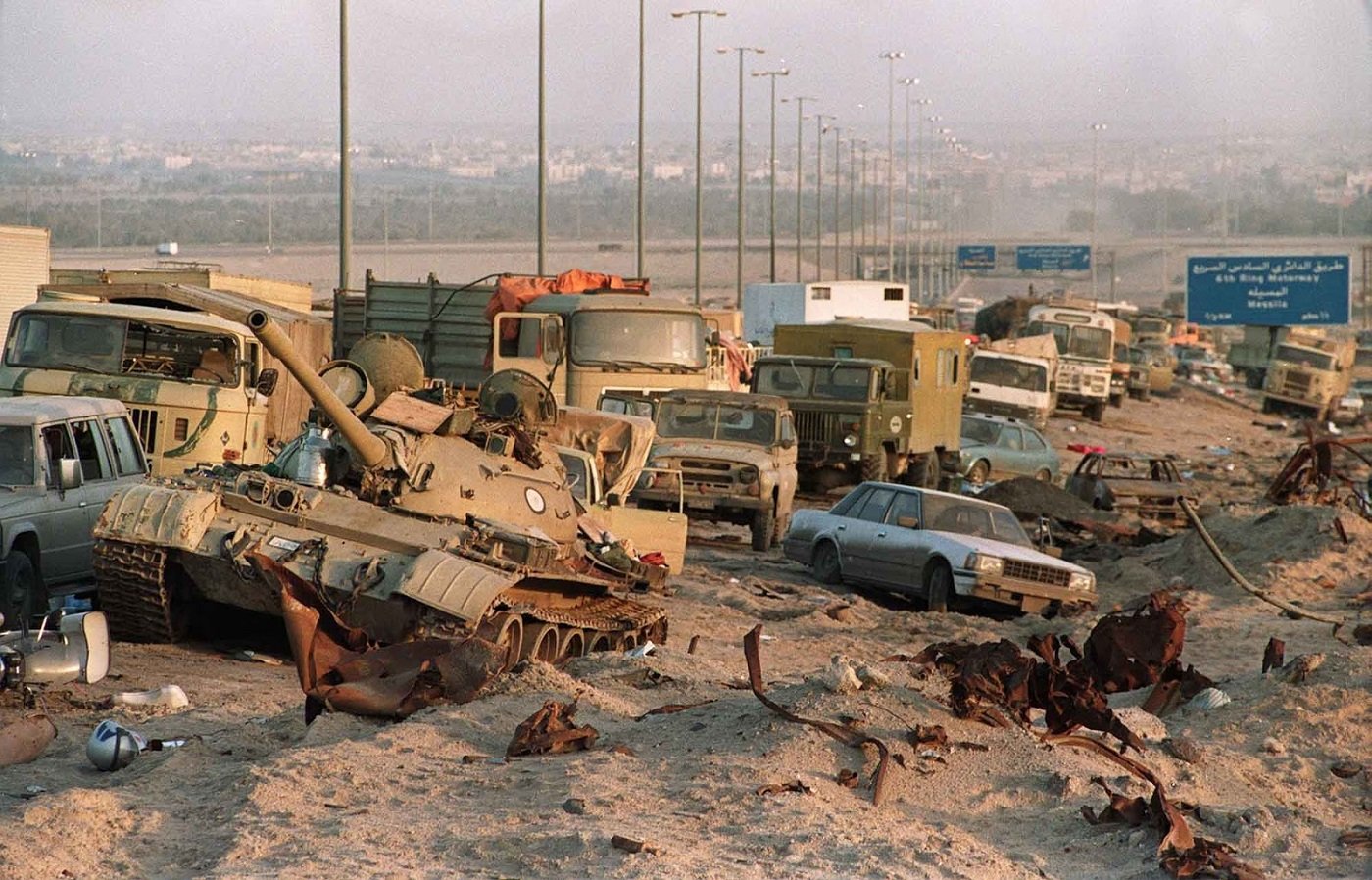|
Thirty two years ago, in the early hours of January 17, 1991, Operation “Desert Storm” began in the Persian Gulf, this war against Iraq opened the sequence of wars after the Cold War. The USA and its allies launched it at the moment when, after the collapse of the Berlin Wall, the Warsaw Pact and the Soviet Union were about to dissolve.
.
This operation created an entirely new geopolitical situation, and the US plotted a new strategy to take full advantage of it. In the 1980s, the US had supported Saddam Hussein‘s Iraq in the war against Khomeini’s Iran. But when this war ended in 1988, the US feared that Iraq would acquire a prominent role in the region. The US then implemented the “divide et impera” policy again.
.
The US pushed Kuwait to demand the immediate repayment of its credit granted to Iraq and to damage it by over-exploiting the oil field that extended under both territories. Washington made Baghdad believe it wanted to remain neutral in the conflict between the two countries, but when Iraqi troops invaded Kuwait in July 1990, US formed an international coalition against Iraq.
.
A force of 750,000 men, 70 percent of them were American, was sent to the Gulf under the orders of US General Schwarzkopf. For 43 days – since January 17, 1991 – the US and their allied air forces carried out over 110,000 sorties with 2,800 aircraft, dropping 250,000 bombs, including cluster bombs that released over 10 million submunitions. Together with the US, British, French, Italian, Greek, Spanish, Portuguese, Belgian, Dutch, Danish, Norwegian and Canadian air and naval forces participated in the bombing.


.
On February 23, coalition troops, comprising over half a million soldiers, launched the ground offensive. It ended on February 28 with a “temporary ceasefire” proclaimed by President George Bush Sr. Immediately after the Gulf War, Washington sent an unequivocal message to adversaries and allies: “The United States remains the only State with truly global strength, scope and influence in every dimension – political, economic and military.
.
There is no substitute for American leadership.” (US National Security Strategy, August 1991). The Gulf War is the first war in which the Italian Republic participated under US command, violating Article 11 of the Italian Constitution. NATO, while not participating officially as such, made its forces and bases available. A few months later, in November 1991, in the wake of the new US strategy the Atlantic Council launched the “new strategic concept of the Alliance.”
.
The same year in Italy the “new defense model” was launched, and, overturning the Constitution, indicated the armed forces’ mission “to protect national interests wherever necessary.” Thus, with the Gulf War the strategy that guided the subsequent wars under US command – Yugoslavia 1999, Afghanistan 2001, Iraq 2003, Libya 2011, Syria 2011, and others – was born and presented as “humanitarian operations for the export of democracy.”
.
How much this corresponded to the truth is testified by the millions of dead, disabled, orphans, refugees caused by the Gulf War, in what President Bush called “the crucible of the new world order” in August 1991. One and a half million deaths should be added, including the death of half a million children caused in Iraq by the subsequent 12 years of embargo, plus many more due to the long-term effects of depleted uranium bullets used extensively in the war.
.
After the deadly embargo, the new massacre was caused by the second war on Iraq launched in 2003. In the same “crucible” thousands of billions of dollars spent on the war burned: only for the second war in Iraq, the Congressional Office of the Budget estimated US long-term spending at approximately $2 trillion.
.
All this must be borne in mind when, shortly, someone in the big media will remind us of the thirtieth anniversary of the Gulf War, “the crucible of the new world order.”
Manlio Dinucci is a Research Associate of the Centre for Research on Globalization (CRG).
|